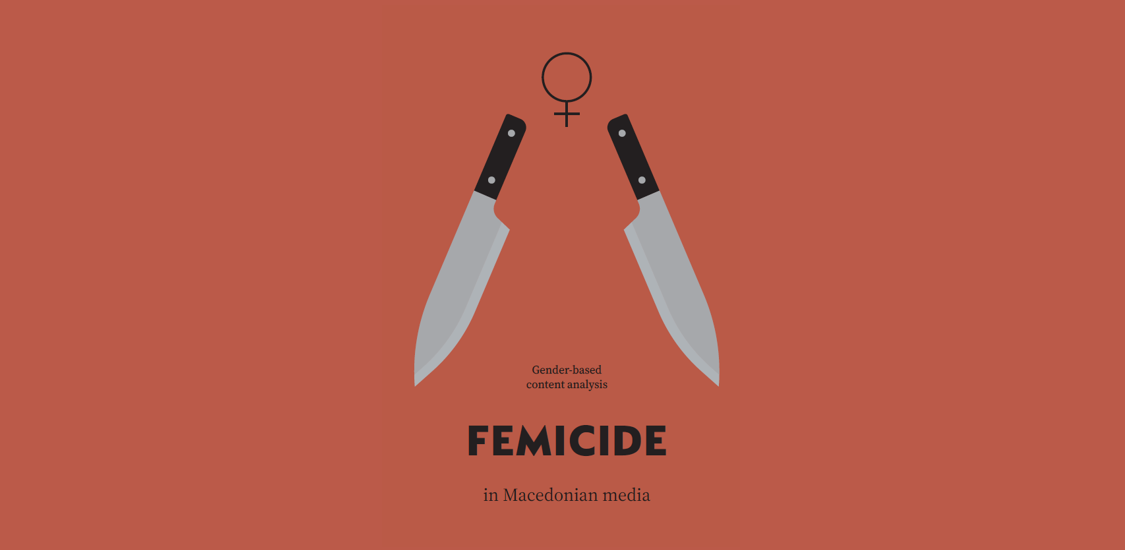
Media do not Recognise Femicide
The media have a relatively low capacity to recognise femicide, as the most severe form of gender-based violence, i.e., recognise that it is the killing of a woman because she is a woman, with an intention to commit the murder.
This is shown by the analysis of gender-based content titled “Femicide in Macedonian Media“, prepared by the Institute of Communication Studies. The analysis shows how media coverage of cases of femicide has an impact on the perpetuation of gender stereotypes, covering 300 news reports on three separate cases of femicide in Macedonia and the femicide of Mahsa Amini in Iran committed by the police, all of which were reported in the period September 2022 – January 2023.
The reporting of the cases in Macedonia does not recognise the gender component of the murders of the women, nor does it take into account that most of these murders were committed by their male partners or relatives, in the homes where the victims lived. There is no analysis of the socio-political context in which the actions of the cases unfolded, and the role of the institutions in the prevention and protection from violence, especially from femicide, is not taken into account. Regarding the reports on the protests in Iran, violence and brutality were not directly connected with the consequence – death, and only a few Macedonian media outlets paid attention to the wider context. In comparison, the focus of the media across Europe was on the struggle for autonomy over one’s own body and freedom regarding one’s life, the imposition of repressive regulations on women’s bodies, the violation of human rights through gender-based violence and femicide, and the revolution for freedom and social justice.
Gender-sensitive language is hardly used in the news reports. The reports do not directly promote gender stereotypes; however, the voice of the victim is of secondary importance, which actually perpetuates the gender stereotype of the inferiority of women in society. In addition, most of the media use sensationalist language, especially in clickbait – headlines, aimed to attract more readers, which are insensitive to the essence of the case.
The reports usually aimed to inform, without providing an in-depth analysis of the cases. The news reports, for the most part, were generic, factual and substantially similar or identical to each other. The sources they used are limited to the announcements of institutions, and additional sources and statistics are used very rarely. A large number of the reports do not indicate the source of information and photos, the privacy of the person is not respected, and there is sensationalism in reporting on cases of accidents and family tragedies.
The analysis of reporting on femicides points to an alarming underperformance of the preventive function of the media in terms of raising awareness among citizens about all forms of gender-based violence, as well as promoting gender equality and eliminating stereotypes about gender roles, which is also prescribed by law.
The media analysis was made as part of the project “Use of fact based journalism to raise awareness of and counteract disinformation in the North Macedonia media space”, which is implemented with the support of the British Embassy in Skopje.

